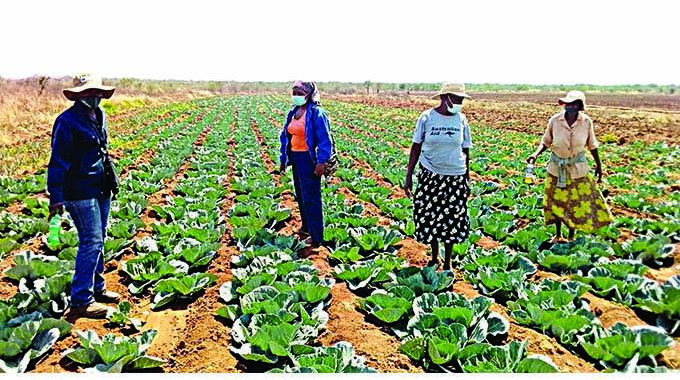Gwanda farmers reject local currency

Yoliswa Dube-Moyo, Matabeleland South Bureau Chief
Farmers in Gwanda District are reluctant to supply fresh produce in local currency which has led to an acute shortage of fresh vegetables at leading supermarkets.
A snap survey in Gwanda and Colleen Bawn revealed that some mainstream supermarkets are going for long periods without some basic vegetables such as carrots, cabbage, spinach, tomatoes and peas as a result.
This has forced residents to buy fresh produce from farmers selling from their trucks in rand after shopping from supermarkets.
Ms Perseverance Ndlovu of Colleen Bawn said she has resorted to having vegetables sent from Bulawayo to mitigate the shortages.
“Whenever someone is coming down, I always ask them to bring me vegetables almost fortnightly because it’s difficult to get some vegetables here and in Gwanda.
I freeze peas and tomatoes so that they last longer and manage the rest until I get my next batch.
With chomolia, I’ve had to start a vegetable patch because you can never get it in supermarkets and I can’t afford to buy vegetables in rand,” said Ms Ndlovu.
The South African rand is the most circulating currency owing to the town’s proximity to South Africa.
Matabeleland South acting provincial agricultural officer Mr Mkhunjulelwa Ndlovu said horticulture was a high input exercise and farmers felt short changed when paid in local currency.
“The challenge of fresh produce shortages has been ongoing for a while in the province.
When we engage farmers, their argument is that horticultural farming requires a lot of capital and they invest in forex, therefore late local currency payments do not make business sense to them.
This has led to most farmers selling their wares privately and it is now easier to find fresh produce such as butternut, tomatoes and green vegetables on the streets,” said Mr Ndlovu.
He said there was a lot of competition in the horticultural sector in the region, which meant that supermarkets could dictate terms as they had more suppliers to choose from.
“With vegetables like green beans, eggplant, carrots and peas, the challenge is the season.
A majority of the farmers during the rainy season spend a lot of time cultivating rain fed crops.
However, some are producing and the majority of farmers in rural areas in communal set ups are trading in rand.
When they bring their produce to town, they’re scared of buyers purchasing in local currency.
There’s a lot of spinach currently but the majority are not taking it to shops due to currency issues,” said Mr Ndlovu.
He said farmers are rational people who understand business.
“If one of the mainstream supermarkets says they’re now buying vegetables in rand, it can be flooded within a week.
A lot of shops are trading in rand.
Even livestock is sold in rand,” he said.
He said there was a need to intensify knowledge sharing in terms of off-season production and taking horticulture as a business.
“We have to train farmers, share knowledge and lobby for specialised horticulture production because we need someone who will be producing eggplant and seek the market, someone producing carrots, onions and so forth.
That production aspect eases these challenges currently being faced,” said Mr Ndlovu. – @Yolisswa












Comments